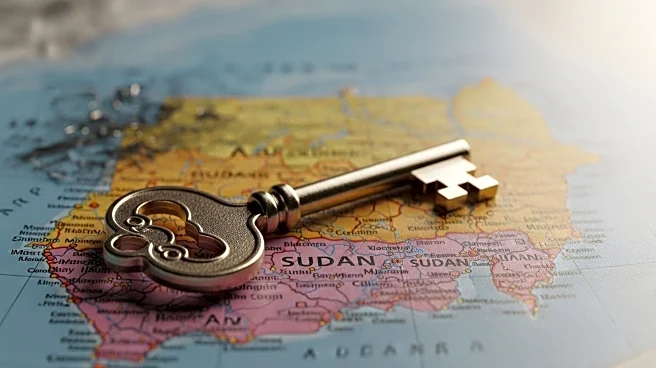What's Happening?
In Sudan, the city of El Fasher has been under siege by the paramilitary Rapid Support Forces (RSF) since April 2024. The conflict has resulted in significant casualties, with estimates suggesting up to 400,000 deaths. Recently, Dr. Omar Selik, a local doctor, was killed by a missile reportedly fired by a drone supplied by the United Arab Emirates to the RSF. The UAE denies backing either side in the conflict. President Trump's senior adviser for Africa, Massad Boulos, has been negotiating with the RSF to allow international aid into El Fasher. An aid convoy, potentially comprising 45 U.N. trucks, could arrive soon, although details are still being finalized.
Why It's Important?
The ongoing conflict in Sudan has led to a humanitarian crisis, with residents of El Fasher facing severe shortages of food and medical supplies. The negotiations led by President Trump's adviser could provide much-needed relief to the city's embattled residents. The successful delivery of aid could also set a precedent for international intervention in similar conflicts, potentially saving lives and stabilizing regions affected by war. However, the situation remains precarious, and the effectiveness of the aid delivery will depend on the cooperation of the RSF and other stakeholders.
What's Next?
The aid convoy is expected to set out as soon as next Monday, pending final negotiations. The distribution of aid once it reaches El Fasher is a critical concern, as ensuring equitable access to resources will be essential for alleviating the humanitarian crisis. The international community will be closely monitoring the situation, and further diplomatic efforts may be necessary to secure long-term peace and stability in the region.
Beyond the Headlines
The conflict in Sudan highlights the complex interplay of technology, warfare, and international diplomacy. The use of drones in warfare raises ethical and legal questions about accountability and the role of foreign nations in supplying military equipment. Additionally, the situation underscores the importance of international cooperation in addressing humanitarian crises and the potential for diplomatic efforts to facilitate peace.










